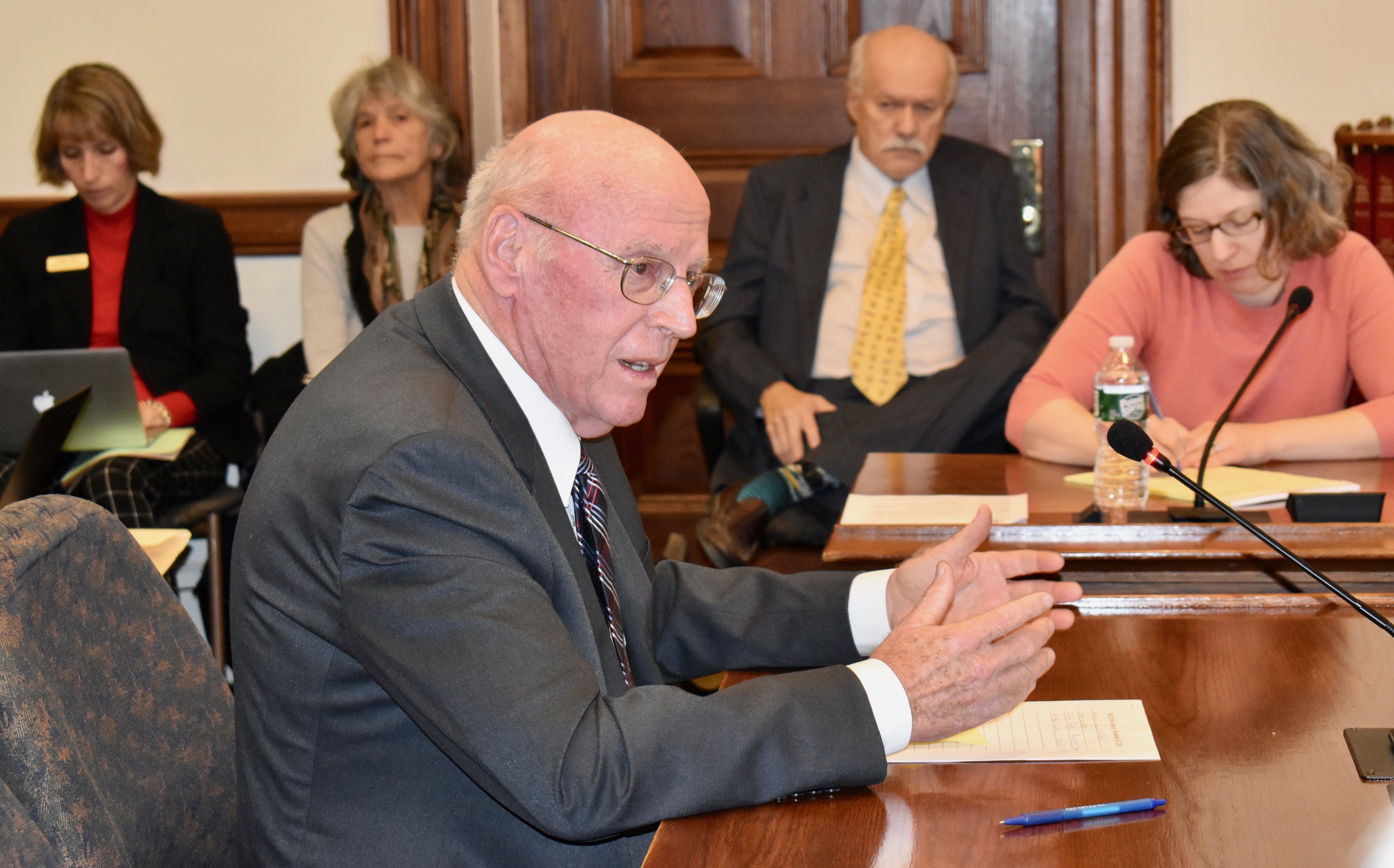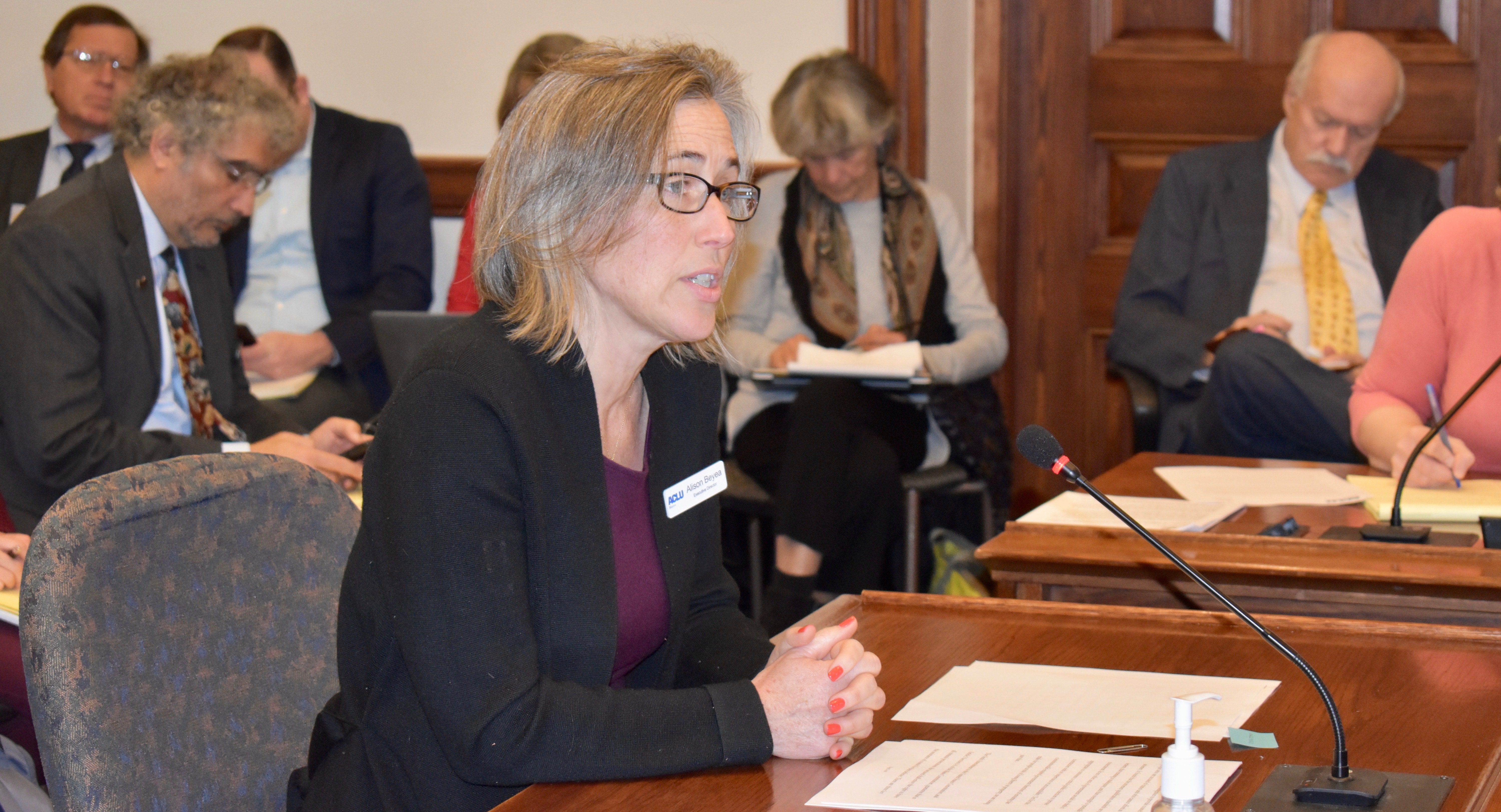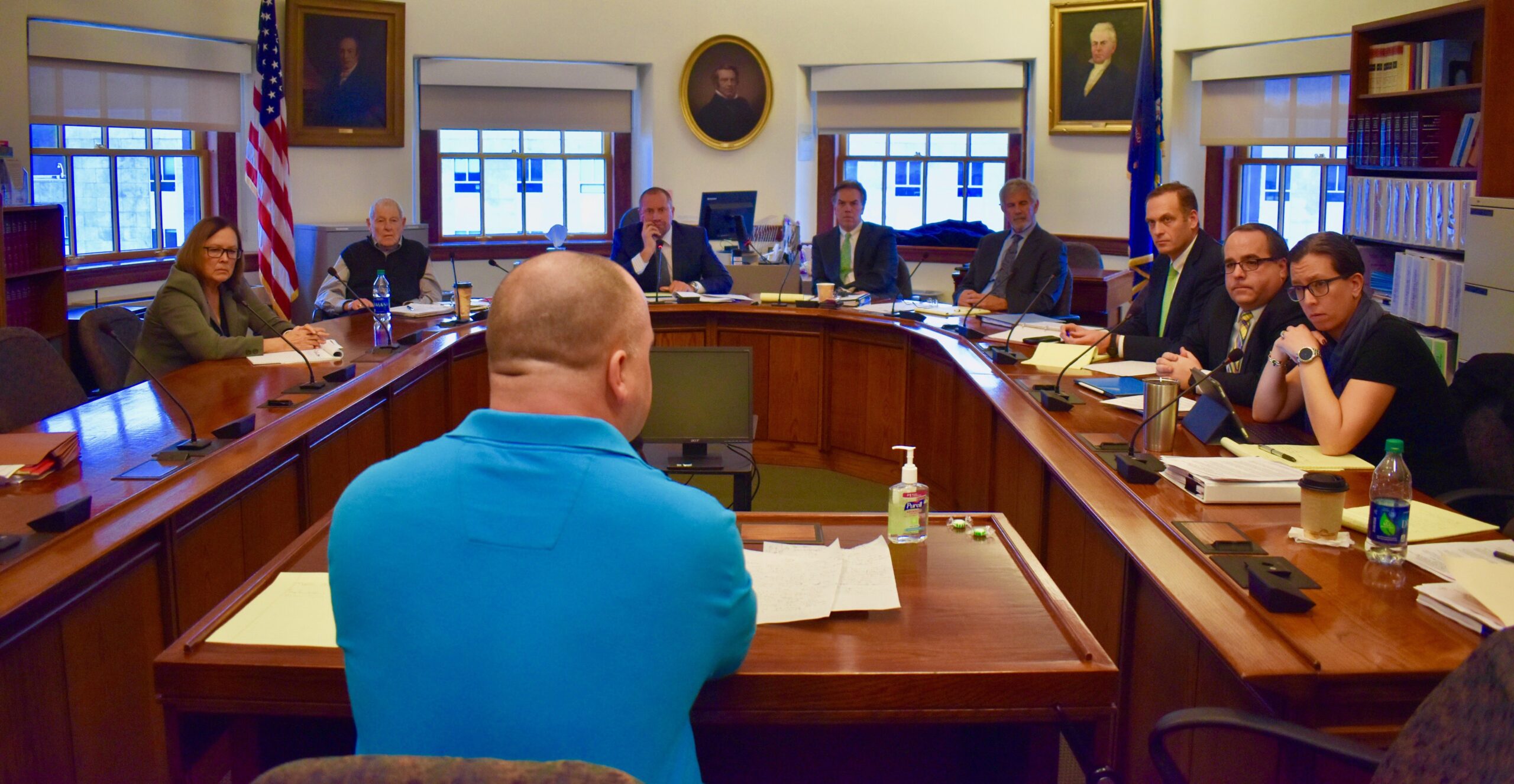Defense attorneys, criminal justice advocates and former prisoners packed a marathon 6½-hour public hearing Tuesday at the State House to voice concerns about the effectiveness of the state’s current system to provide legal defense to Maine’s poor.
The eight newly appointed members of the Maine Commission on Indigent Legal Services held the public hearing as they prepared to consider multiple reform proposals, including whether Maine should create a state-run public defender office.
Former state Chief Justice Daniel Wathen said Maine’s judicial system needs a “cultural change,” which accepts that the right to an attorney applies to everyone who faces the possibility of jail and not just those who are likely to receive a jail sentence.
“It’s a legitimate question: whether you stick with assigned counsel or whether you go with a public defender system, but either way I think the key is funding and resourcing. We just can’t continue to treat this as something to be endured,” Wathen said.
Nearly a decade ago, the commission, with a staff of four employees, took over the management of the defense of Maine’s poor from the judicial branch. It approves private lawyers that can be assigned by the courts to represent Maine residents who can’t afford to hire their own lawyer.

In the last three years, multiple investigations by lawmakers and outside groups have criticized the agency for its lack of oversight.
Alison Beyea, executive director of the ACLU of Maine, told the commissioners on Tuesday that the ACLU would consider suing Maine unless the state ensures that it is supervising court-appointed attorneys and training lawyers to provide a strong defense to the poor they represent.
The commission staff does not currently have the capacity to observe court proceedings or evaluate private attorneys assigned to represent the poor, according to executive director John Pelletier.
During the hearing, Beyea said the ACLU had helped a woman get a 40-day jail sentence reduced to a $100 fine. The client was originally represented by a court-appointed attorney who had been previously sanctioned by the Board of Overseers of the Bar for not providing adequate representation, she said.
“Maine is not going to be able to meet its Constitutional obligations with its current staffing, its reimbursement rate or its current delivery model,” Beyea said. “At the state level, it is necessary to hire training staff who can provide meaningful training, auditors who can conduct oversight and lawyers who can provide support to private attorneys who are handling difficult or unfamiliar issues.
“In many communities, the state needs to establish a public defender office that has resources that are equal to or similar to the District Attorney’s office.”
A report by the nonpartisan Sixth Amendment Center estimated it would cost Maine $3 million annually to operate a public defender office in Cumberland County, which could handle 80 percent of adult and juvenile criminal cases. The center was hired to evaluate the commission last year, and in a report released in April, it identified multiple systemic problems with how the poor were defended in Maine.

In fiscal year 2018, Maine spent more than $21 million statewide to provide court-appointed counsel to Maine’s poor. The commission’s spending has nearly doubled in the nine years since it began overseeing several hundred private defense attorneys.
The new commission has discussed whether Maine should transition to a public defender system or a hybrid system of private and state-employed attorneys since it began meeting in August.
Maine is the only state that does not have a public defender system that employs its own attorneys.
Chairman Josh Tardy said in an interview after the hearing that a decision on a public defender system would not happen before the 2020 legislative session, and that it would require input from the legislature and Gov. Janet Mills (D).
“We want to do it because we want to have a constitutionally adequate system. We’re not doing it because we’re afraid of a lawsuit,” said Tardy, who has practiced law in Maine for 26 years and works as a lobbyist.

Anthony Sanborn Jr., who spent 27 years in Maine State Prison, testified in support of the commission’s work at Tuesday’s hearing.
Sanborn was sentenced in 1993 to 70 years in prison for the murder of his girlfriend Jessica Briggs when they were both 16. A deal with prosecutors freed Sanborn in November 2017 after 17 months of work on a post-conviction review by his court-appointed defense attorney, Amy Fairfield.
Sanborn became emotional while testifying and said he would have spent a billion dollars to go home.
In reality, Fairfield was paid $130,432 for 2,163 hours of work she and two associates billed on Sanborn’s case. It was the most money ever paid by the commission on a single case.
The Maine Center for Public Interest Reporting last week published a three-month investigation that found a systematic lack of oversight of attorney billing during the agency’s first nine years of operation.
Fairfield was the highest billing attorney in Maine in fiscal year 2018. At the state’s flat $60-an-hour rate for court-appointed attorneys, the $275,612 she billed the state is equal to approximately 88 hours a week, excluding a small amount of expenses.
Some of the money reflected time billed by other attorneys at her firm under her name, but there is currently no public record of how much.
“I want to make it very clear that I will open my books, I will open my doors, I will do whatever anybody feels they need to see or do with regard to how our office runs,” Fairfield said at the hearing.
Advocates for defendants emphasized that the state needs to focus its attention on reforming the Lawyer of the Day program, which provides free counsel to all defendants at their first appearance in court.
In a contest between the taxpayers and the clients, the taxpayers must yield.”
— Jamesca Drake, president of the Maine Association of Criminal Defense Lawyers
Inconsistencies with how the program is run in courthouses and by attorneys made many question whether defendants were being fully informed of the consequences of pleading guilty and if attorneys were arguing strongly enough for bail.
The Sixth Amendment Center also found that prosecutors were often speaking to defendants and offering plea deals before the person had waived their right to counsel. Plea deals have repeatedly been criticized as a way for prosecutors to move the docket.
Kennebec County District Attorney Maeghan Maloney argued that the commission may not want to take away a person’s right to plead guilty early in a case.
Maloney said in response to a question that it would be possible for her office to compile a list of cases that prosecutors would seek jail time for and provide it to the commission’s staff, so attorneys could be assigned before an initial appearance.
Sen. Michael Carpenter (D-Aroostook), chair of the state Judiciary Committee and a defense attorney, said the majority of his committee was ready to move forward with “significant reforms” to the state’s defense system during the 2020 session.
Reforming Maine’s defense system could cost the state more money, but people’s constitutional right to have a defense lawyer represent them in court should be more important, said Jamesca Drake, the current president of the Maine Association of Criminal Defense Lawyers.
“I certainly don’t deny, and no one could deny, a crucial role that guilty pleas play in moving the docket,” Drake said. “That being said, there’s no reason why the plea needs to happen at the initial appearance. There’s no need for the plea to have taken place before the defendant has had an opportunity to actually meet with an attorney, not a lawyer of day … but an actual appointed attorney.”
“In a contest between the taxpayers and the clients, the taxpayers must yield,” Drake said.
Correction: A previous version of this article misattributed testimony made by Jamesca Drake, the current president of the Maine Association of Criminal Defense Lawyers, on when guilty pleas should be accepted to Kennebec County District Attorney Maeghan Maloney. The story has been updated.







